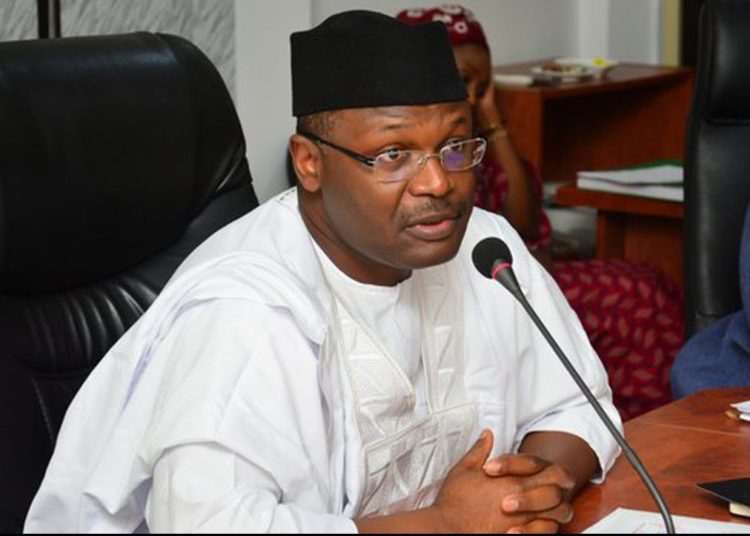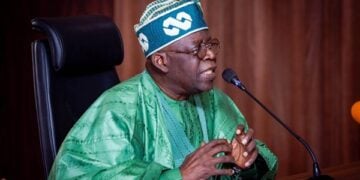Chairmen of Independent National Electoral Commission (INEC) and his Economic and Financial Crimes Commission (EFCC) have expressed divergent views on a bill seeking to establish the electoral offences commission.
While INEC emphasised the need for the establishment of the proposed commission, the EFCC kicked against it.
The bill seeks to provide the legal framework to establish and empower the National Electoral Offences Commission to investigate and prosecute electoral offences.
It also proposes to establish the investigation, legal and prosecution unit that will be responsible for dealing with matters connected to mutual international assistance in criminal matters involving electoral offences.
The bill proposes N10,000,000 or five years jail term for any officer or executive of any association or political party that contravenes the provision of clauses 221, 225(1), (2), (3) and (4) and 227 of the 1999 constitution.
INEC chairman, Prof. Mahmood Yakubu who spoke at the one-day public hearing on a “Bill For An Act To Establish The National Electoral Offences Commission” at the House of Representatives said when established the agency would help to address the wanton disregard for the law as well as infractions and criminal acts during elections in the country.
Yakubu said under the present Electoral Act 2022, INEC was handicapped as it lacked the power to arrest or prosecute electoral offenders.
The chairman noted that the commission had over the years been confronted with various criminal infractions like vote buying, ballot box snatching, voter inducement as well as violence.
He disclosed that as part of the incumbrances encountered by INEC, out of 125 electoral offence cases filed, only 60 convictions were obtained including the recent one in Akwa Ibom State.
He, therefore, noted that the establishment of the commission would lift the burden placed on INEC and enable it to focus on its enormous responsibilities as an electoral body.
According to him, the observation made by Justices Uwais and Nnamani committees was apt as they recommended the establishment of a similar body.
But the EFCC chairman, Abdulrasheed Bawa, said the Independent Corrupt Practices and Other Related Offences Commission (ICPC), the police, EFCC and other law enforcement agencies by their extant laws have powers to investigate and prosecute electoral crimes.
Bawa, who was represented at the public hearing by an assistant commander at the EFCC, Deborah Ademu-Eteh, said, “There is no need to create an agency solely to investigate and prosecute electoral offences most especially when our electoral process is seasonal in nature and elections are held once in four years in the country.
“Furthermore, it is our suggestion that the existing law enforcement agencies should be strengthened to achieve maximum output instead of creating a new agency for investigation and prosecution of electoral offences in the light of the ongoing plan to implement the Oronsanye Committee’s proposal by the Federal Government Of Nigeria.”
Meanwhile, stakeholders and civil society organisations (CSOs) spoke in favour of the bill.
In its presentation, Cleen Foundation recommended that the representatives from the Federal Road Safety Commission (FRCN) and Nigeria Correctional Service (NCS) should be included as members of the commission.
The Centre For Transparency Advocacy (CTA) and West African Civil Society Forum said key stakeholders from the CSOs should also be added as members of the commission.
“We observed the conspicuous absence of CSOs in the commission. We recommend they be added since they are also front liners on the field. The number of women in the committee should also be increased to at least 35 percent in line with gender policy,” CTA said.





